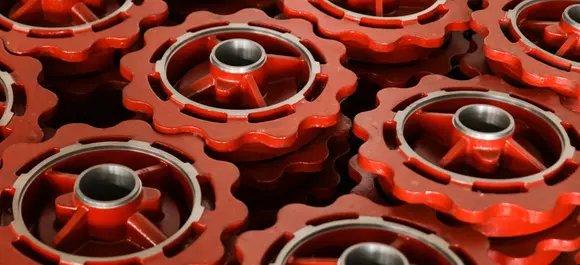Mobile:+86-311-808-126-83
Email:info@ydcastings.com
Durable and Efficient Stainless Steel Pumps for Various Industrial Applications and Needs
The Advantages of Stainless Steel Pumps in Modern Industry
Stainless steel pumps are increasingly becoming a staple in various industries due to their superior properties and versatility. The combination of corrosion resistance, durability, and hygiene makes these pumps ideal for a wide range of applications, from food processing to pharmaceuticals and beyond. In this article, we will explore the numerous benefits of utilizing stainless steel pumps in modern industrial settings.
Corrosion Resistance
One of the primary advantages of stainless steel pumps is their resistance to corrosion. Made from chromium and nickel alloys, stainless steel can withstand harsh environments, making it suitable for transporting aggressive fluids such as acids, bases, and saline solutions. Unlike traditional materials like cast iron or aluminum, which are prone to rust and deterioration when exposed to moisture, stainless steel maintains its integrity over time. This characteristic not only prolongs the lifespan of the pump but also reduces maintenance costs and downtime.
Hygiene and Cleanliness
In industries such as food and beverage, pharmaceuticals, and biotechnology, hygiene is paramount. Stainless steel pumps are non-porous and can be easily cleaned and sanitized, which minimizes the risk of contamination. Their smooth surface finish helps prevent the accumulation of bacteria and other pathogens, making them compliant with stringent health and safety regulations. The use of stainless steel pumps in these sectors ensures that products remain pure and safe for consumer use, thereby fostering trust and reliability.
Durability and Strength
stainless steel pump

Stainless steel pumps are known for their durability and strength. They can withstand high pressures and handle a variety of fluids, including those with particulate matter. This makes them suitable for both low and high-flow applications across different industries. The robust construction of stainless steel pumps means they can operate efficiently under challenging conditions, such as extreme temperatures and high flow rates, which contributes to their versatility in engineering applications.
Efficiency and Performance
In addition to their physical properties, stainless steel pumps tend to offer better efficiency compared to their counterparts made from other materials. They are designed to operate at optimal performance levels, which reduces energy consumption and promotes sustainable practices within industries. The hydraulic performance of stainless steel pumps often exceeds that of standard pumps, which translates to cost savings and improved operational output.
Environmental Sustainability
In today's world, sustainability is a critical consideration for businesses aiming to reduce their environmental impact. Stainless steel is 100% recyclable, which contributes to a circular economy. When pumps reach the end of their life cycle, they can be repurposed or recycled, thereby minimizing waste. Additionally, the energy savings realized from using efficient stainless steel pumps contribute to lower carbon footprints, aligning with global sustainability goals.
Conclusion
As industries continue to evolve, the need for reliable and efficient pumping solutions remains a priority. Stainless steel pumps exemplify the ideal blend of strength, versatility, and hygiene, making them an essential component in many applications. Their ability to resist corrosion, ease of maintenance, and efficient performance ensures that they not only meet but exceed the demands of modern industrial processes. Investing in stainless steel pumps is a forward-thinking decision that promises operational excellence, sustainability, and enhanced product quality across various sectors. In an ever-changing industrial landscape, the advantages of stainless steel pumps are clear, making them a top choice for businesses committed to excellence.
-
Why Should You Invest in Superior Pump Castings for Your Equipment?NewsJun.09,2025
-
Unlock Performance Potential with Stainless Impellers and Aluminum End CapsNewsJun.09,2025
-
Revolutionize Your Machinery with Superior Cast Iron and Aluminum ComponentsNewsJun.09,2025
-
Revolutionize Fluid Dynamics with Premium Pump ComponentsNewsJun.09,2025
-
Optimizing Industrial Systems with Essential Valve ComponentsNewsJun.09,2025
-
Elevate Grid Efficiency with High-Precision Power CastingsNewsJun.09,2025











